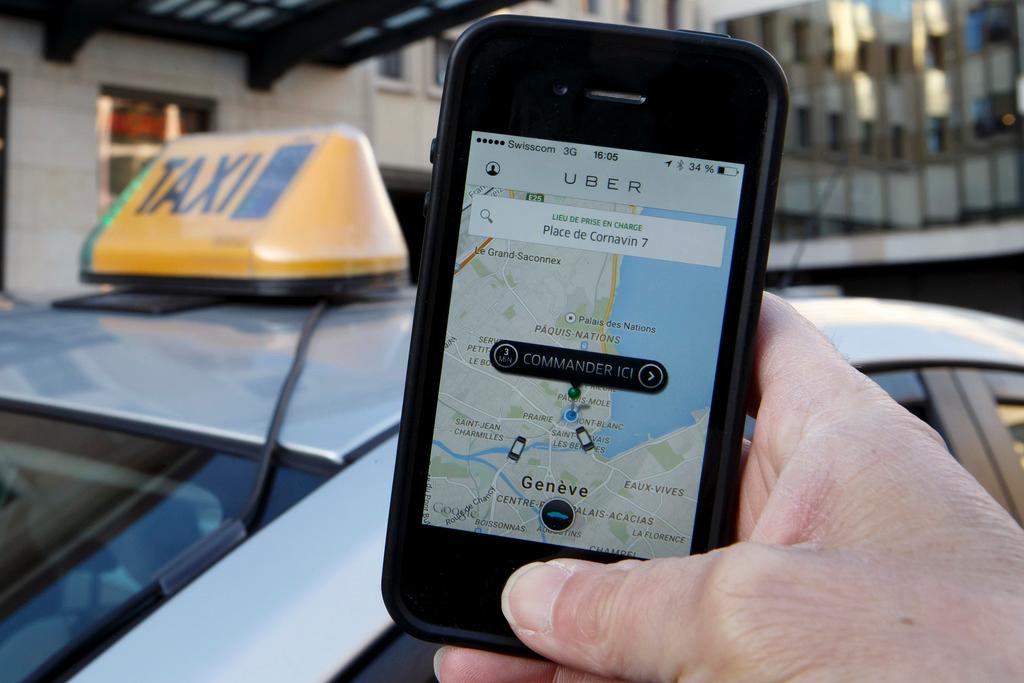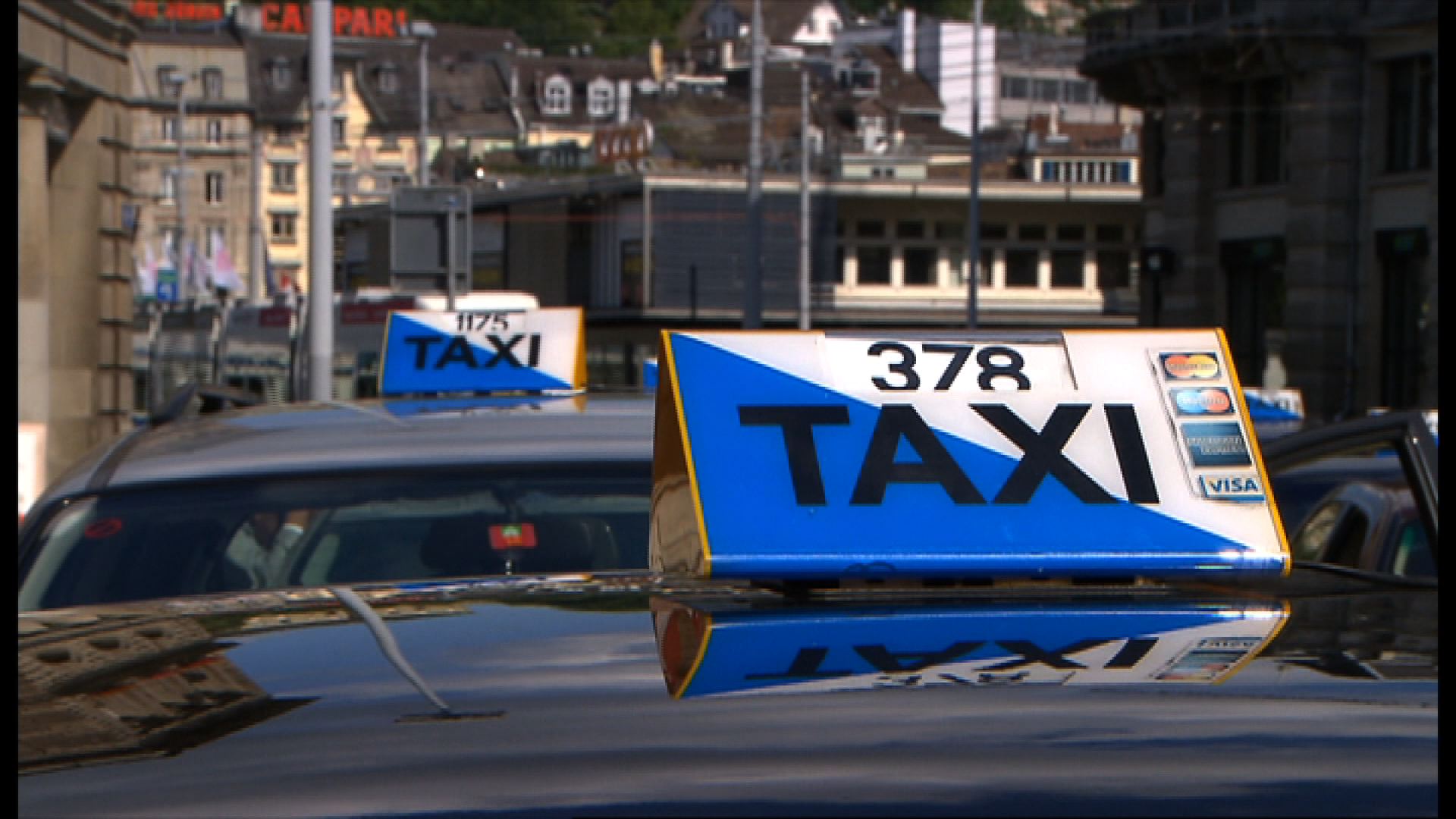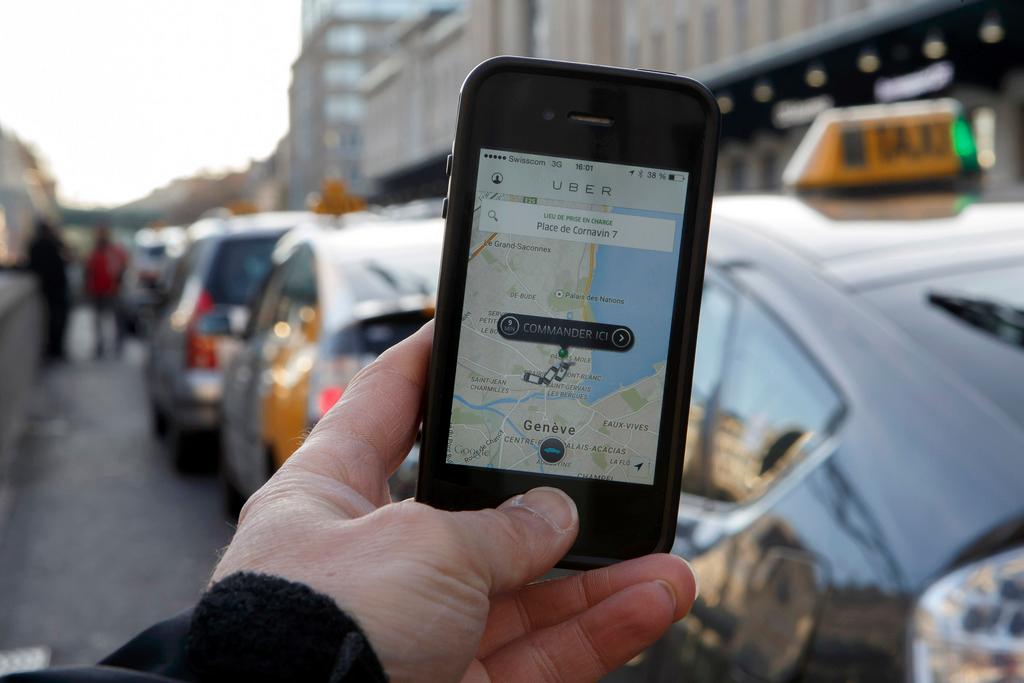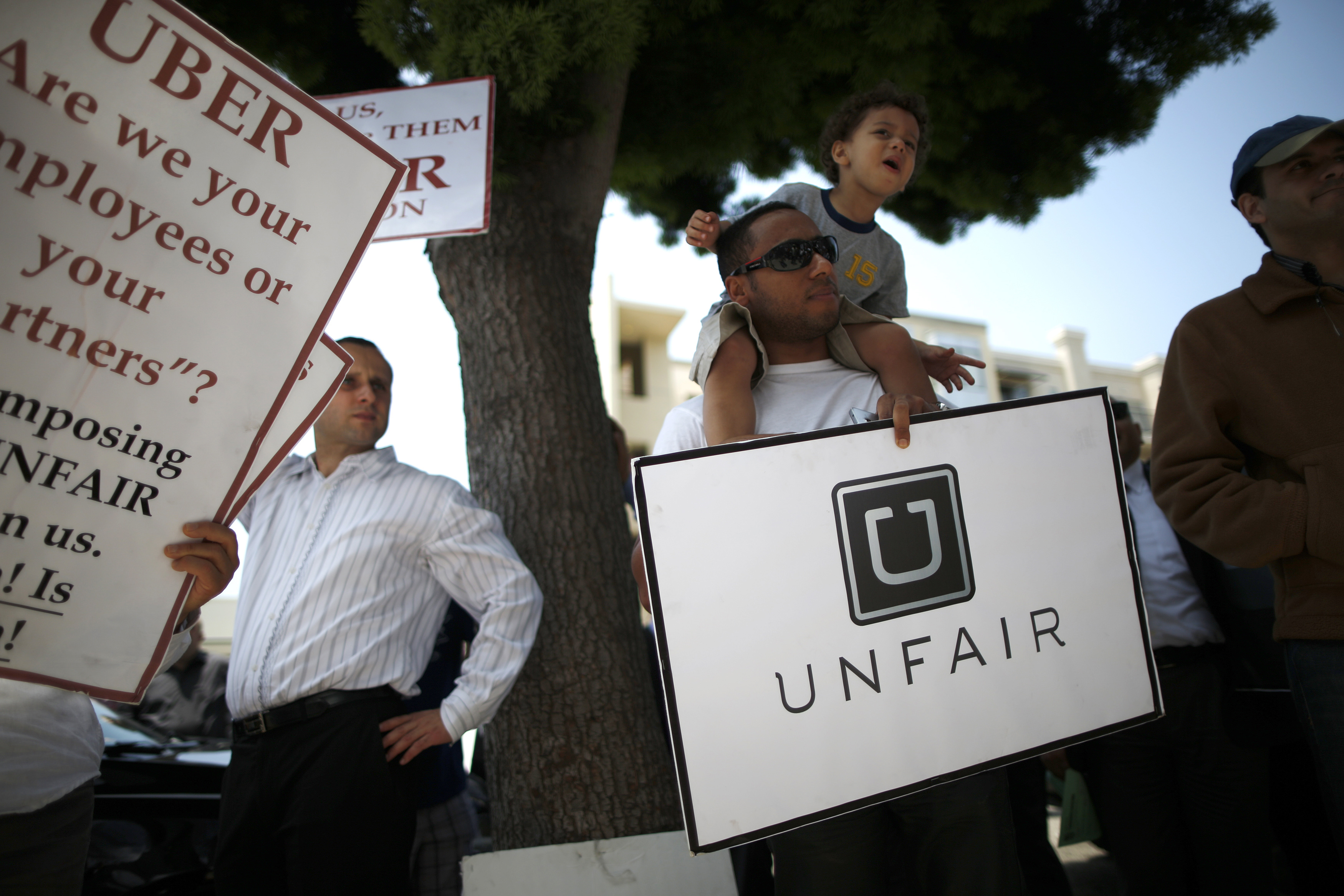Uber banned in canton Geneva

Ride-sharing service Uber has been ordered to cease operations in Geneva because it violates cantonal taxi regulations. Drivers face fines of up to CHF20,000 ($20,500).
Geneva cantonal government issued the order at the end of March, according to a report in Monday’s Tribune de GenèveExternal link newspaper, which was confirmed by a spokesman for Pierre Maudet,External link the cantonal cabinet minister responsible for taxis in Geneva.
Uber, which has been active in Geneva since September 2014, differs from taxi services in that it allows riders to order and pay for its services through smartphones. Some drivers work for car service companies; others spend a few hours driving their personal cars on the side for some extra money.
Canton Geneva considers UberExternal link to be a taxi dispatch centre and therefore bound to cantonal tax laws.
The California-based company sees things differently. “We are not a dispatch centre for taxis but a technology business that develops IT applications that allow, in a specific market, bringing together supply and demand,” Thomas Meistre, spokesman for Uber in western Europe, told the Swiss news agency.
Uber says the ban is the equivalent of outlawing emails under the pretext that they infringe on the law for the post office. The company is planning to appeal the decision through an administrative court.
Uber drivers in Geneva now face fines of between CHF100 and CHF20,000, according to the website of the cantonal department of security and business.
At the beginning of March a Geneva court threw out a legal case against Uber brought by local taxi firms, which had accused the start-up of unfair competition.
Uber
Uber started four years ago and now operates in 250 cities worldwide, including Zurich, Basel, Geneva and Lausanne.
Valued at $40billion (CHF39 billion), Uber does not own cars or employ drivers, but connects passengers and vehicles via its app, offering what the firm says is much-needed competition for the taxi industry. Its UberPop service is described as a “car-sharing solution for urban areas”, which lets non-professional drivers become chauffeurs-for-hire at rates far lower than normal taxi rides.
But critics have accused the global app-based taxi booking service of flouting competition rules and of not carrying out sufficient safety checks on drivers and their vehicles.
Uber has been hit with legal challenges in Belgium, France, Germany, the Netherlands Spain, South Korea, India and California, and has faced protests from taxi firms in major cities, including London.

In compliance with the JTI standards
More: SWI swissinfo.ch certified by the Journalism Trust Initiative




You can find an overview of ongoing debates with our journalists here. Please join us!
If you want to start a conversation about a topic raised in this article or want to report factual errors, email us at english@swissinfo.ch.